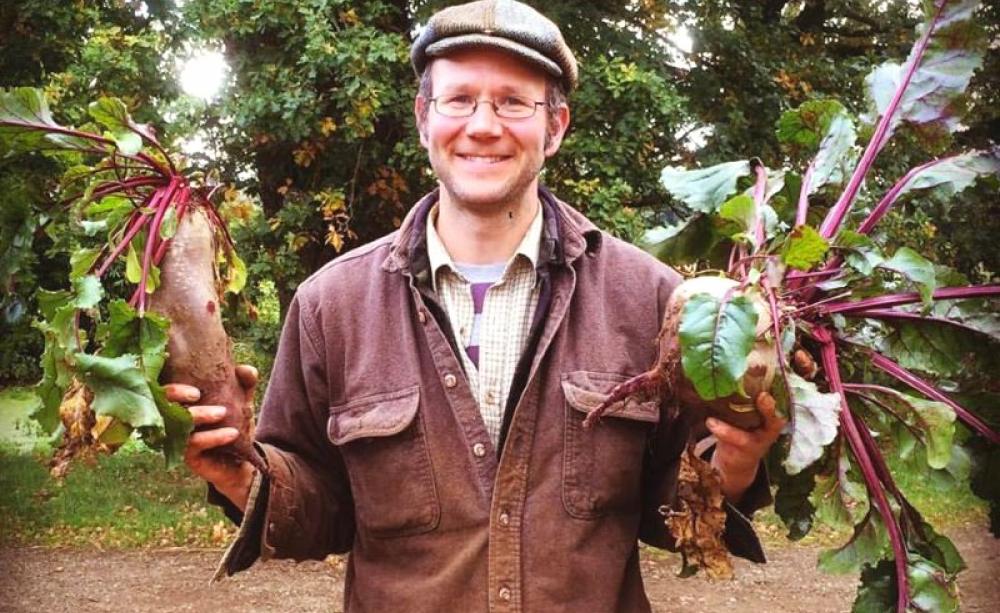A further expansion of organic agriculture and integrating successful organic management practices into conventional farming are important next steps.
A new review of the evidence around organic farming has been published by researchers at the University of British Columbia in the prestigious Science Advances journal.
The study reviewed existing scientific evidence to assess the performance of organic farming against a wide range of indicators - from crop yields to farmer livelihoods.
The review reiterates many of the benefits of organic farming, while also highlighting key areas where more research is required.
Despite some gaps in the evidence, it is abundantly clear from this new analysis - and from the authors' own conclusions - that organic agriculture has a crucial role to play in building a fair and environmentally sustainable food system.
The authors note that organic farming delivers considerable benefits for biodiversity, with an average of 40-50% more wildlife on organic farmland compared to non-organic.
The study also highlights the benefits of organic farming for soil health, including reduced soil erosion and increased water retention, which in turn improves resilience to flooding and droughts.
Multiple benefits for the environment, farmers and consumers
In addition, the existing evidence shows that organic farms generally consume less energy and emit fewer greenhouse gases than non-organic farms. The authors also point out that organic farms rely on natural processes for crop fertilisation (such as nitrogen-fixing plants).
That's unlike much non-organic agriculture which depends heavily on fossil-fuel based fertilisers - namely manufactured nitrogen and mined phosphate. Similarly, organic farms use fewer and less-toxic pesticides - a benefit for the environment, farm workers and consumers.
The research also points to evidence that organic systems provide more benefits to farmers and farm workers. For example, research has found that organic farms are more profitable and more resilient that non-organic farms.
In addition, farmers tend to have greater access to cooperatives and farmer networks, and to credit and health programmes. Organic farm workers are also less likely to be exposed to hazardous pesticides. Indeed, reduced health risk is one of the primary reasons given for adopting organic practices in developing countries.
From the public's point of view, again, the study highlights benefits of organic. The authors cite recent research which found high levels of beneficial nutrients in organic food, as well as to the absence of pesticides found in organic.
A further expansion of organic agriculture and integrating successful organic management practices into conventional farming are important next steps.
On this latter point, the study notes that avoidance of pesticides could provide a significant health benefit, especially for people in countries with lax pesticide legislation or with high levels of pesticides in non-organic food.
The researchers note the difference in price between organic and non-organic food. However, the authors go on to note that this price difference can vary hugely - in the United States, it can be as little as 7%. Importantly, the authors point out that the difference in price could decrease considerably if organic production increased, since distribution and processing costs would be lower.
More research required
Despite the wealth of strong evidence, there remain a number of gaps in our knowledge around the impacts of organic farming, and the authors of this review rightly focus on these gaps.
They highlight, for example, the fact that most of the existing research has been carried out in North America and Europe, and that there is scant evidence from low-income or developing countries. Given that some three quarters of organic producers are in developing countries, this is clearly an area which urgently needs to be better understood.
Due to these knowledge gaps, there is some speculation on certain aspects of organic compared to non-organic agriculture. For example, while acknowledging higher levels of wildlife on organic farms, the study's authors suggest that these benefits could diminish as a result of lower yields, since more land would be required to grow the same amount of food.
However, existing evidence does not support this concern, with organic farms having an average of 50% more wildlife compared to a 20% lower yield. In any case, the authors also go on to note that the yield gap could be closed if more investment was put into developing organic-specific crop species. Around 95% of crops used in organic farming have been bred for intensive, high-input farming systems.
The review also questions whether enough nutrients and plant fertilisation would be available through natural processes alone if all agriculture transitioned to organic. Existing research on this question is not clear but there is a broader, more important point to make about the way we currently use farmland.
Over 25% of the world's land is used to graze livestock, and almost 35% of cropland is used to grow animal feed - this is a disproportionate amount of land compared to the amount of nutrition livestock provides us. We must halt rainforest and other habitat destruction, eat more seasonally and more locally, and reduce agriculture's environmental footprint overall.
Organic is not a panacea - but it is a key part of the solution
The authors state in their conclusion that organic agriculture cannot be a 'Holy Grail' for food security in part because it is simply a method of production.
This is, of course, correct. Many of the worst deficiencies in the global food system come down to other factors - from scandalous levels of food waste and diets rich in meat and dairy products, to lack of access and affordability in developing countries.
As the authors note, making these changes could have a great impact overall. However, it is wrong to assume that organic farming does not have a vitally important role to play in the future of our food system. This review found that organic agriculture performed better or at least as well as non-organic farming on every factor, except yield.
However, the authors (in common with most commentators) use an extremely narrow definition of 'productivity' - yield of crop per hectare of farmland. This is simply a measure of output, not productivity.
No other industry ignores all the key variable inputs needed to achieve output apart from the space occupied by the production process, as is typically the case with farming. Farming output is achieved by using land, but also requires other inputs such as labour, fuel, fertilisers (mined, manufactured or from other crops and livestock), irrigation and pesticides. All these inputs must be assessed to measure productivity.
When all these other inputs are taken into account, the productivity of organic farming is likely to be significantly better than non-organic systems. This is vital, because resources other than land may be more limiting, with the impact of soil degradation, lack of water availability, and the need to make massive cuts in greenhouse gas emissions, all likely to reduce output.
Influencing wider agricultural practice
The authors wait for the final paragraph to unequivocally set out their view - and it's a positive one. "From a broad policy perspective, we conclude that organic agriculture offers many benefits and could be an important part of a suite of strategies to improve the sustainability and equity of our food system."
The then raise another critical point, that non-organic farmers are increasingly adopting organic practices: "the influence of organic agriculture extends beyond the ~1% of agricultural land it covers at present. Many conventional farms have, in recent years, increased the use of organic practices such as conservation tillage, cover cropping, or composts."
Bridging the 'organic - conventional' divide and sharing knowledge is vitally important if we are successfully to rise to the challenge of feeding a growing population sustainably, healthily and fairly. We could not agree more with their conclusion:
"A further expansion of organic agriculture and integrating successful organic management practices into conventional farming are important next steps."
The paper: 'Many shades of gray - The context-dependent performance of organic agriculture' is by Verena Seufert & Navin Ramankutty and published in Science Advances.
Peter Melchett has been Policy Director of the Soil Association, the UK's main organic food and farming organisation, working on campaigns, standards and policy, since 2001. He runs an 890-acre organic farm in Norfolk, with beef cattle and arable seed crops.
He is a member of the BBC's Rural Affairs Committee, and was a member of the Government's Rural Climate Change Forum and Organic Action Plan Group, and the Department of Education's School Lunches Review Panel. He received an honorary doctorate from Newcastle University in 2013, was on the Board of the EU's £12m 'Quality Low Input Food' research project, and is a Board member for two EU research projects on low input crops and livestock.







